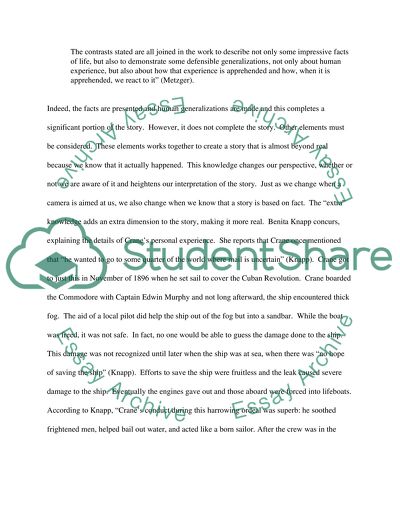Cite this document
(“Stephen Cranes The Open Boat Book Report/Review”, n.d.)
Retrieved from https://studentshare.org/miscellaneous/1534058-stephen-cranes-the-open-boat
Retrieved from https://studentshare.org/miscellaneous/1534058-stephen-cranes-the-open-boat
(Stephen Cranes The Open Boat Book Report/Review)
https://studentshare.org/miscellaneous/1534058-stephen-cranes-the-open-boat.
https://studentshare.org/miscellaneous/1534058-stephen-cranes-the-open-boat.
“Stephen Cranes The Open Boat Book Report/Review”, n.d. https://studentshare.org/miscellaneous/1534058-stephen-cranes-the-open-boat.


